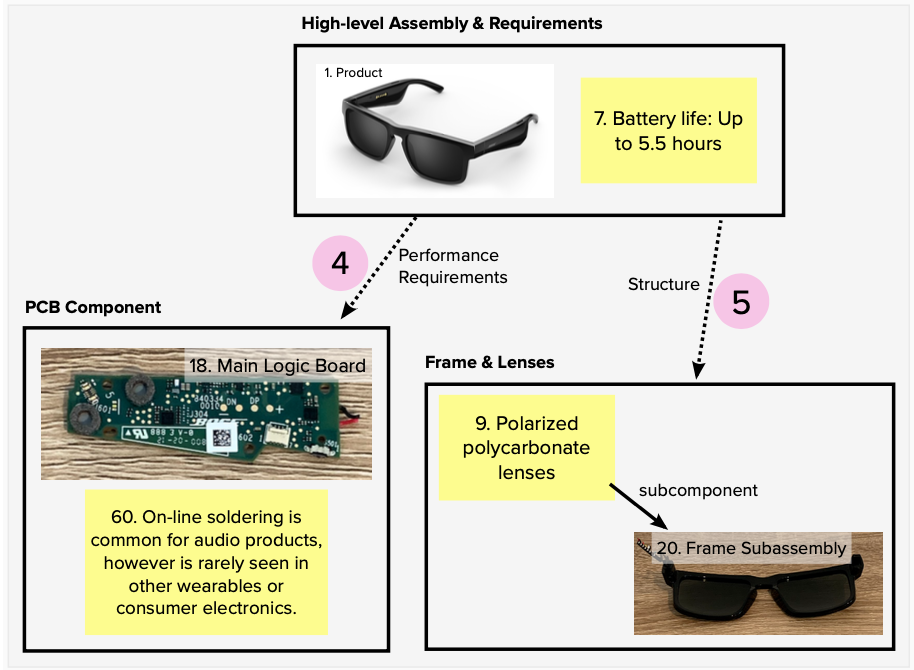Abstract
Knowledge organization is an essential component of engineering design, and a deeper understanding of how designers organize knowledge could enable more effective insights in support of the design process. To explore this, we examine 23 professional designers’ knowledge organization practices as they virtually engage with data collected during a teardown of a consumer product. Designers organized this data by forming groups of related data, nesting subgroups of data within groups, and creating directional links between groups of data and individual data. Our results indicate three insights about how designers organize and acquire knowledge from product teardowns. First, we observe that while designers find grouping data to be more effective for learning, linking proved more helpful for knowledge transfer. Second, we find that designers employ links between data much more frequently than they do nests, and that links primarily serve to identify trade-offs, requirements, and opportunities for team collaboration. Finally, a graph analysis indicates that design features, product housing, cost, and manufacturing coexist as separate but central groups in designers’ knowledge organization, reflecting the diversity of perspectives on knowledge organization emergent in a constrained teardown activity. These findings provide insight into professional designers’ knowledge organization practices, and represent a preliminary step toward design knowledge bases that more accurately reflect designer behavior, ultimately enabling more effective data-driven support tools for design.
